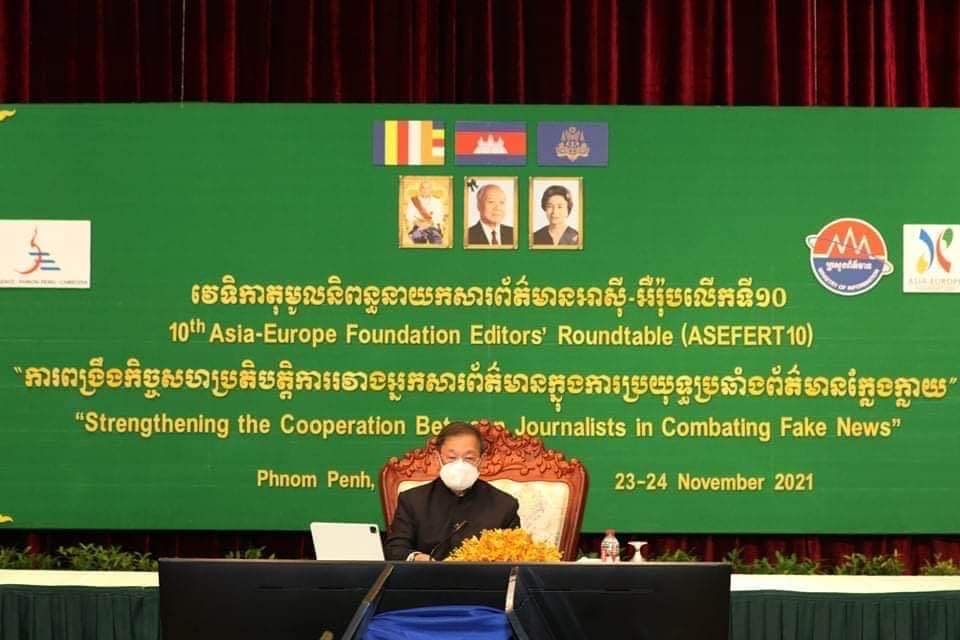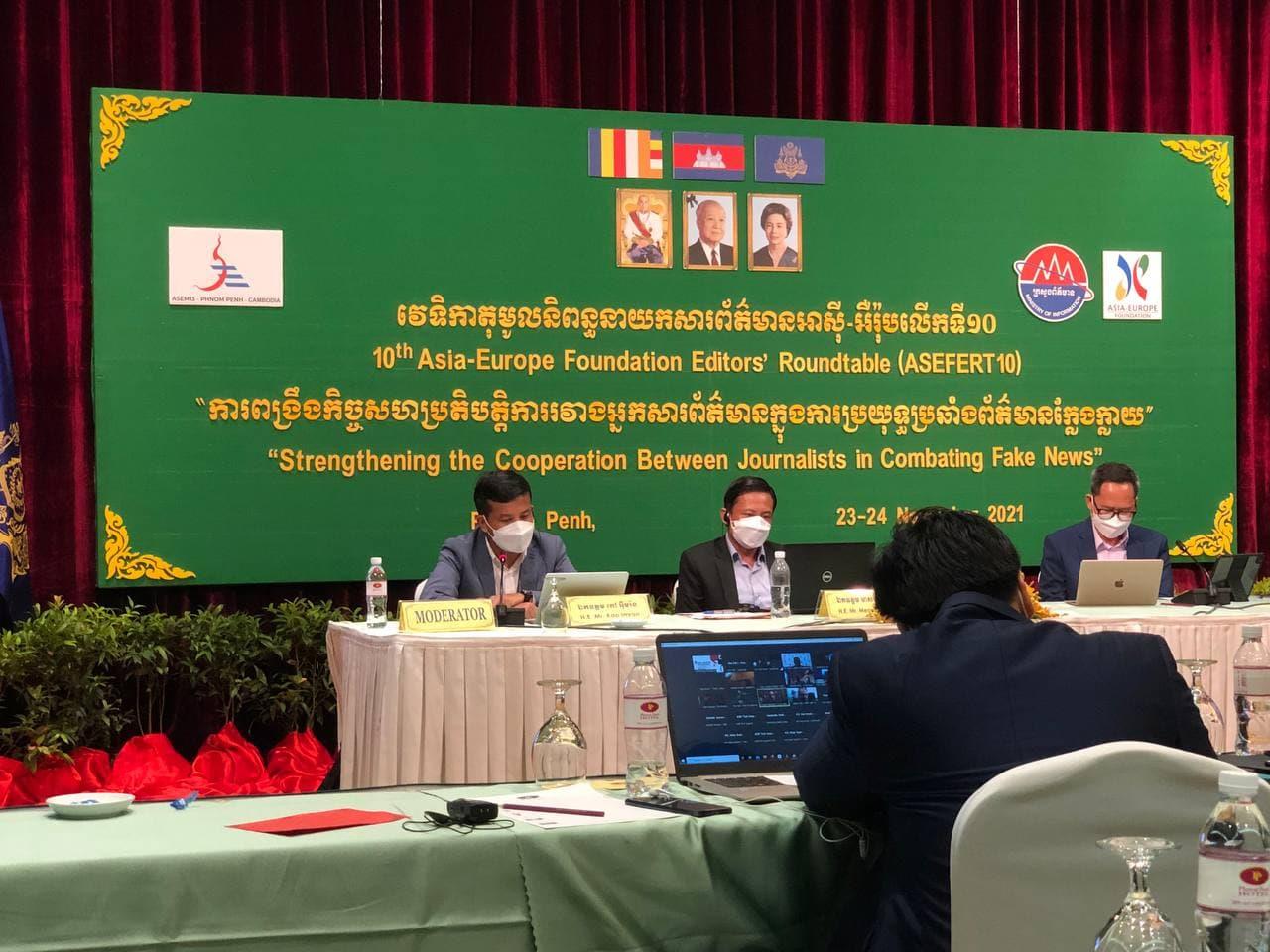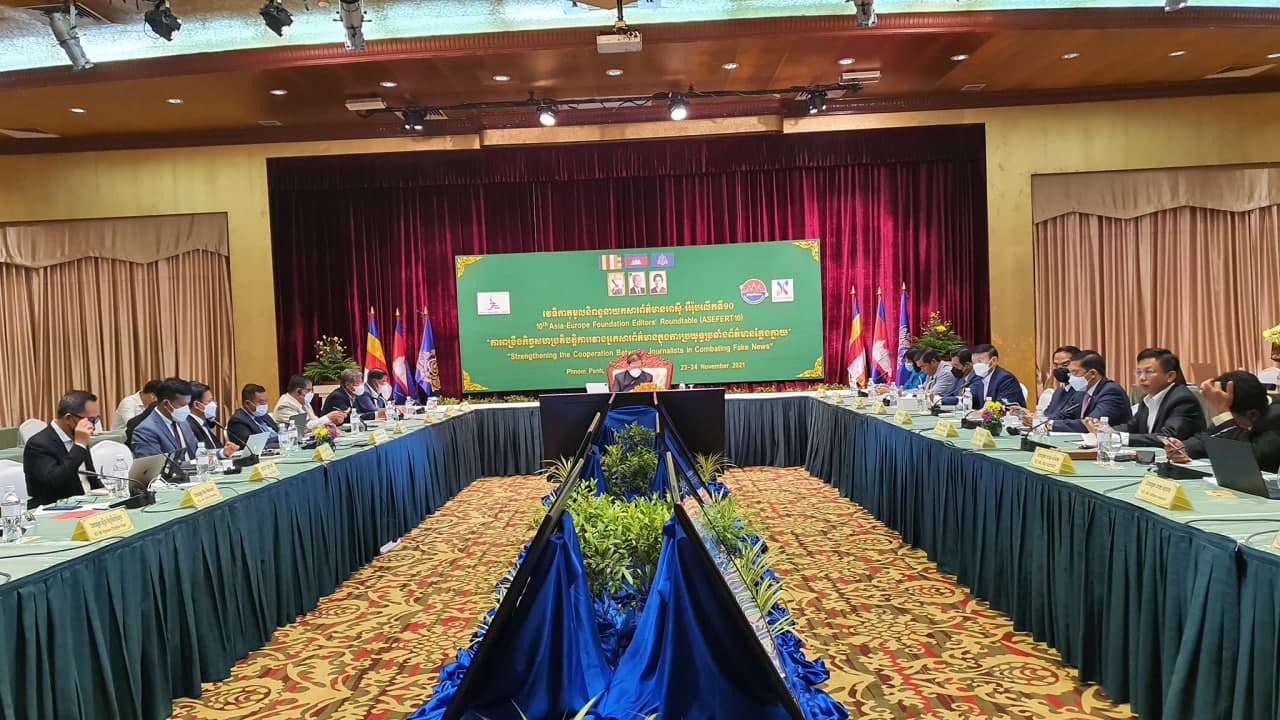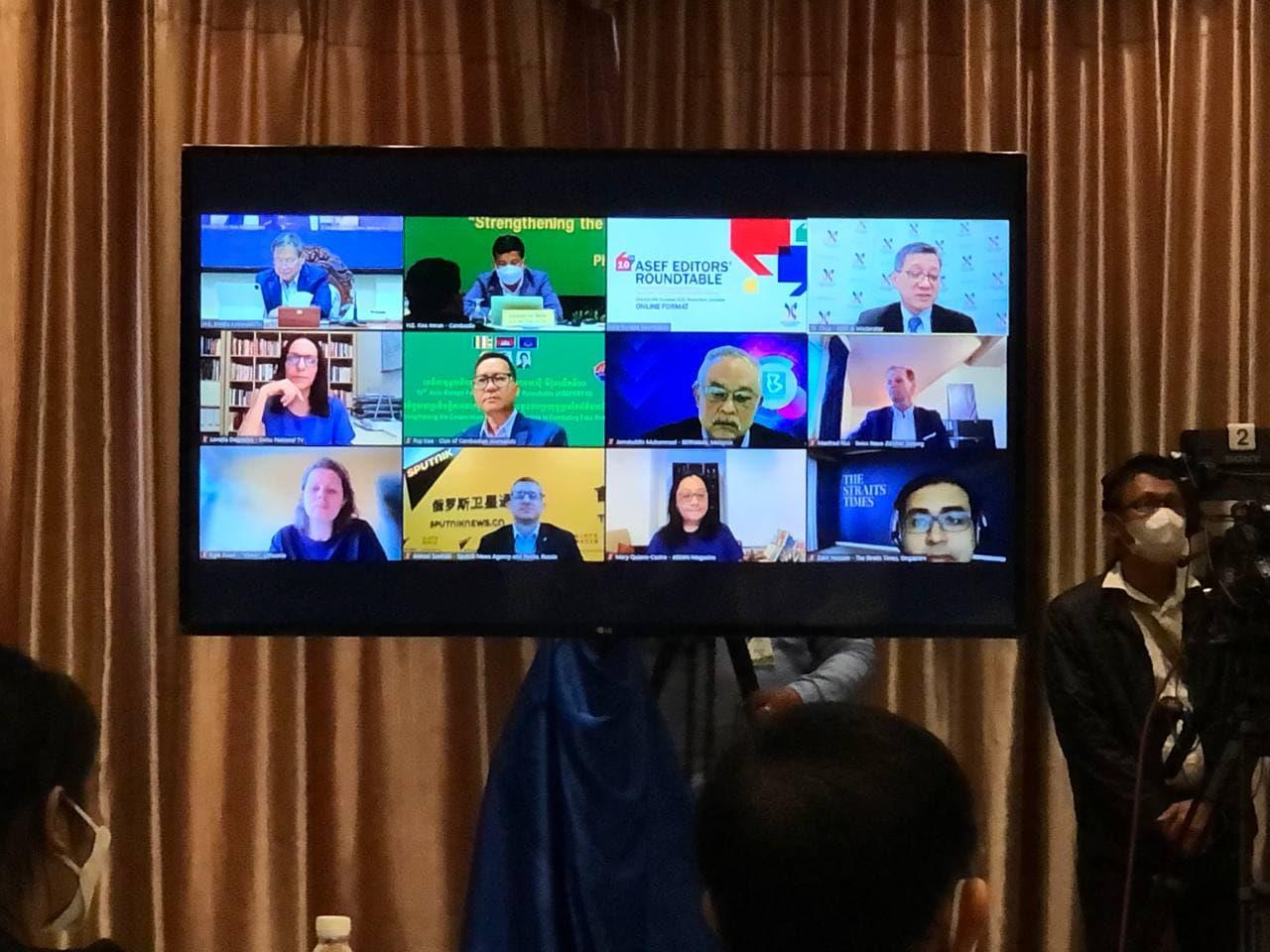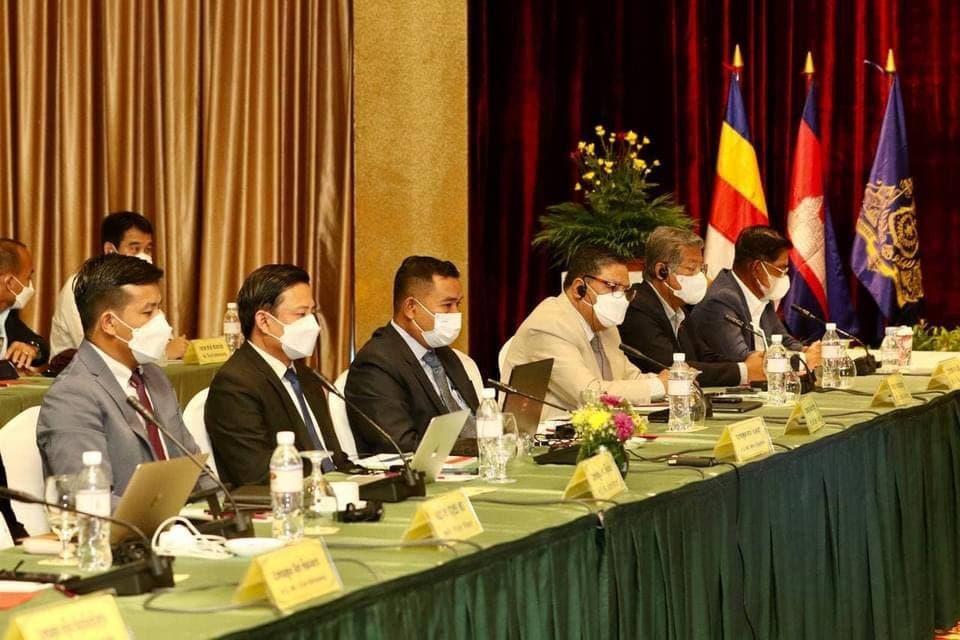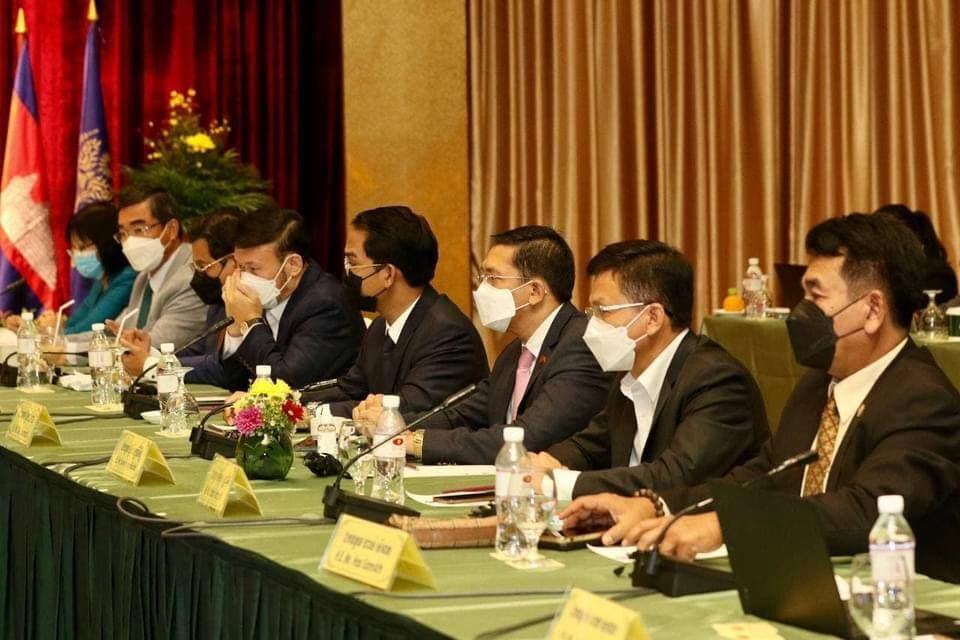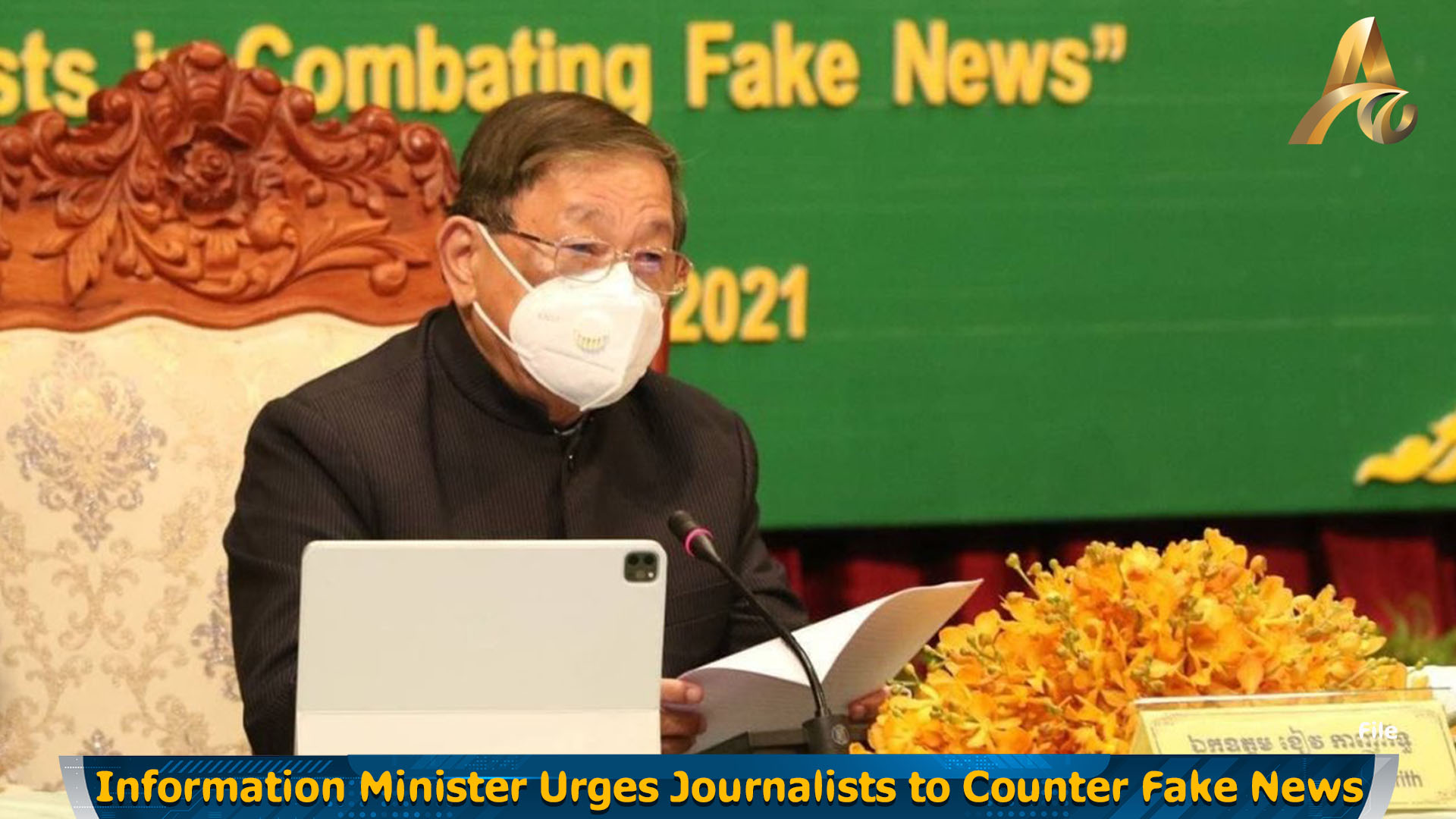PHNOM PENH: The 10th Asia-Europe Foundatio Editor’s Roundtable began on Tuesday, as an official side event of the 13th Asia-Europe Meeting Summit. The event was held through virtual videoconference and was joined by editors and journalists across Asia and Europe representing their respective news organizations and countries.
The two-day event was held under the theme of “Strengthening the cooperation between journalists in combating fake news”. Journalists, editors and government officials were expected to hold a discussion and exchange perspectives on current affairs pertaining to fake news and misinformation, in order to formulate effective strategies to combat its rise and also facilitate cooperation between journalists in both continents.
The first day of the roundtable was held under the presidency of the Minister of Information, Khieu Kanharith, who delivered a keynote speech at the opening ceremony of the event. In his speech, the Minister extended a warm welcome to all the ASEF editors in virtual attendance, and then went on to describe the timely and highly relevant subject of fake news in our current times.
He began by remarking on how the advancement of technology and contemporary social media algorithms have unleashed new possibilities of deception and fabrication, which have popularized the practice of fake news to a whole new level. He emphasized that the negative impact of misinformation and fake news could not be ignored, with its ability to disrupt any given country’s unity and peace as well as exacerbate distrust, division and violence.
He added that Cambodia was no exception to this phenomenon, and referenced a statement made by Prime Minister Hun Sen in the early days of the COVID-19 outbreak in Cambodia, saying “COVID-19 is a vicious disease, but fake news is much more vicious.”
The Minister detailed how Cambodia has established an anti-fake news committee at the ministerial level, which will primarily work to give facts to the public, verify sources and sometimes even impose legal measures when necessary. He described the committee’s approach in using the same messaging platforms where fake news spreads to quickly verify sources and offer the truth. In particular, he referenced the use of a Telegram group with over 6,200 members comprising of government officials, authorities, journalists, NGOs, youth and members of the public to facilitate and function as a fact-checking center.
He stressed that he strongly believes new laws do not need to be made every time new cases of fake news are brought to light, rather, strong leadership, teamwork and cooperation would act as the best and most effective approach to minimizing the spread of fake news. He also made sure to highlight the vitality of strengthening cooperation between both continents to counter fake news in a post-pandemic time.
Closing his speech, the Minister concluded that while fake news is a complex and disaggregated problem, he firmly believes that joint efforts and commitment made to counter its spread is the right way forward.
